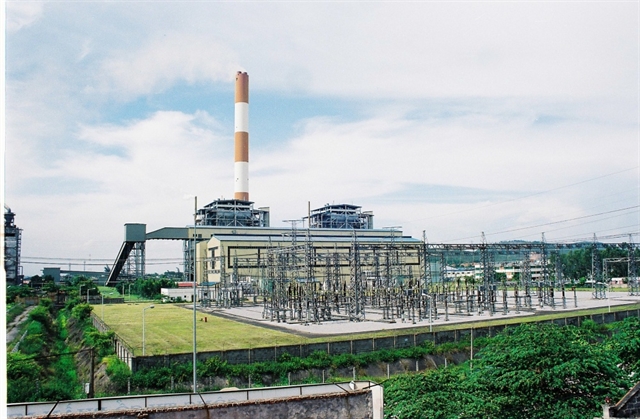 Economy
Economy


|
| An overview of the Phả Lại Thermal Power Co Ltd in the northern province of Hải Dương. Phả Lại Thermal Power Co Ltd saw a net profit increase of 27 per cent to reach VNĐ242.6 billion thanks to an improved gross profit margin, up from 14.7 per cent to 19.4 per cent. — Photo vietnambiz.vn |
HÀ NỘI — Hydropower plants have seen poor business performance in the first quarter of 2019, which could give coal-powered and gas-powered thermo-electric plants more opportunities to produce electricity.
To ensure demand is met, the country's largest power group Việt Nam Electricity (EVN) will need to mobilise more power from these two groups and also from some solar projects that are expected to be operational in 2019.
At the end of the first quarter, the profits of most hydropower businesses slumped. Sê San 4A Hydropower JSC saw profit drop by 60 per cent to VNĐ8.7 billion (US$372,000). The company attributed the low profit to unfavourable weather conditions which made the machines less stable.
Southern Hydropower JSC and Vĩnh Sơn-Sông Hình Hydropower JSC also reported profit reductions of more than 50 per cent. Gia Lai Hydropower JSC and Sông Vàng Hydropower JSC saw profits fall by 34 per cent and 43 per cent, respectively.
Some other units in the hydropower segment recorded modest profit growth including Nậm Mu Hydropower JSC and Hydro Power JSC – Power No 3, up 3.3 and 4.4 per cent, respectively.
The poor results could be due in part to the return of the El Niño weather phenomenon to Việt Nam at the end of 2018, which caused widespread drought in the central region.
Over the last 10 years, there have rarely been three consecutive years of heavy rainfall. After lots of precipitation in 2017 and most of 2018, rainfall is likely to be down this year, according to Bảo Việt Securities Co (BVSC). This would mean less power is generated by hydropower plants.
This provides an opportunity for thermal-power businesses as EVN faces the need to mobilise more power from other sources.
Opportunity for thermal-power and renewables
Some thermal power units enjoyed positive business results in the first quarter amid the hydropower downturn.
Phả Lại Thermal Power Co Ltd saw net profit increase by 27 per cent to reach VNĐ242.6 billion thanks to an improved gross profit margin, up from 14.7 per cent to 19.4 per cent.
Ninh Bình Thermal Power reported a net profit rise of 21 per cent. PetroVietnam Power Corporation, which owns many coal and gas thermal power plants, reported profit of nearly VNĐ916 billion, up by 17 per cent.
Electricity enterprises have also been focusing on solar power and other sources of renewable energy.
In the first quarter of the year, Gia Lai Electricity JSC recorded profit 16.8 per cent higher than in Q1 2018. The opening of two solar power plants in the central province of Thừa Thiên-Huế and the Central Highlands Province of Gia Lai contributed to the higher profit. As much as 51 per cent of the revenue came from solar power while the share from hydropower decreased from 87 per cent to 47 per cent.
To encourage the development of renewable energy in Việt Nam, Prime Minister Nguyễn Xuân Phúc issued Decision 11/2017/QĐ-TTg on April 11, 2017 about mechanisms to encourage solar power projects. It took effect on June 1, 2017 and will last until June 30, 2019.
For solar power projects connected to the national power grid before June 30, 2019, Việt Nam Electricity (EVN) will buy the entire power output at VNĐ2,086 (9.35 US cents) per kWh for 20 years.
This means that if solar projects are not connected to the grid before the June deadline, the purchasing price of electricity they generate could be lower and will not be fixed.
As a result, a series of businesses such as Sao Mai Group, Thành Thành Công and Bamboo Capital have rushed to finish solar projects to enjoy the preferential rate. — VNS